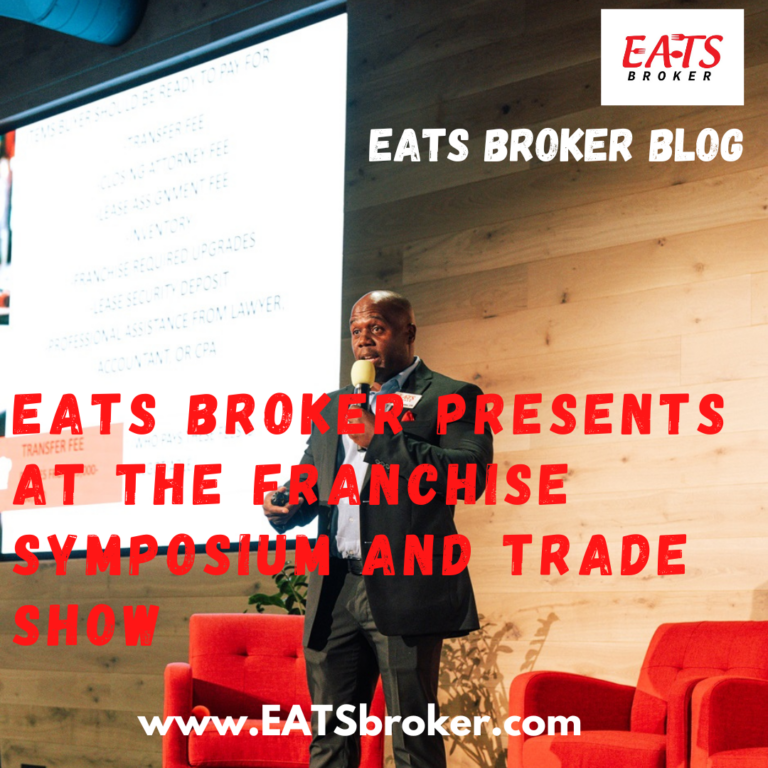
EATS Broker presents at the Franchise Symposium and Trade Show
The Restaurant Broker at EATS Broker

The Restaurant Broker at EATS Broker
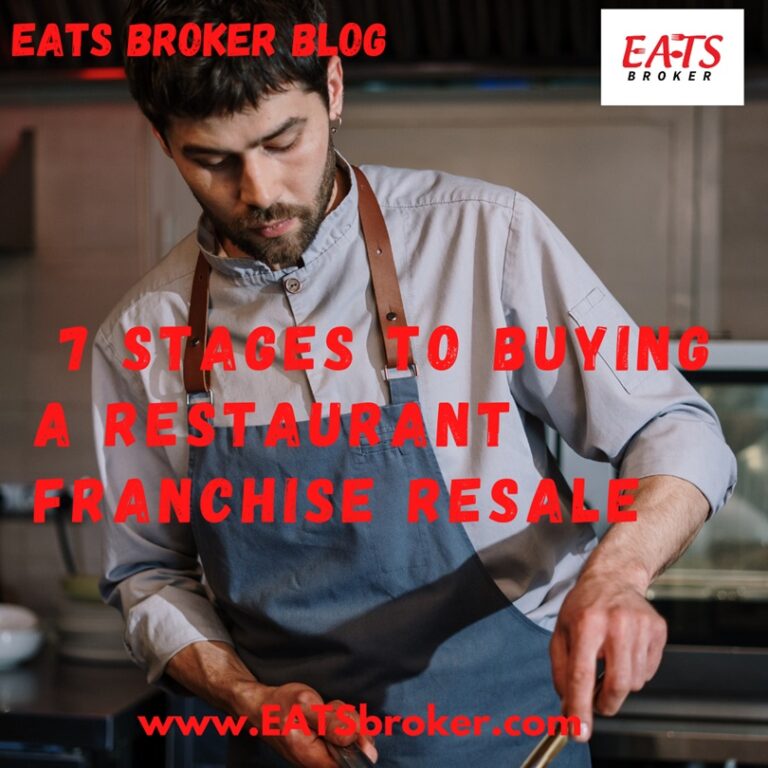
The Stages of Buying a Restaurant Franchise Resale can be complex and sometimes seem never-ending. The Restaurant Broker will provide a road map for success
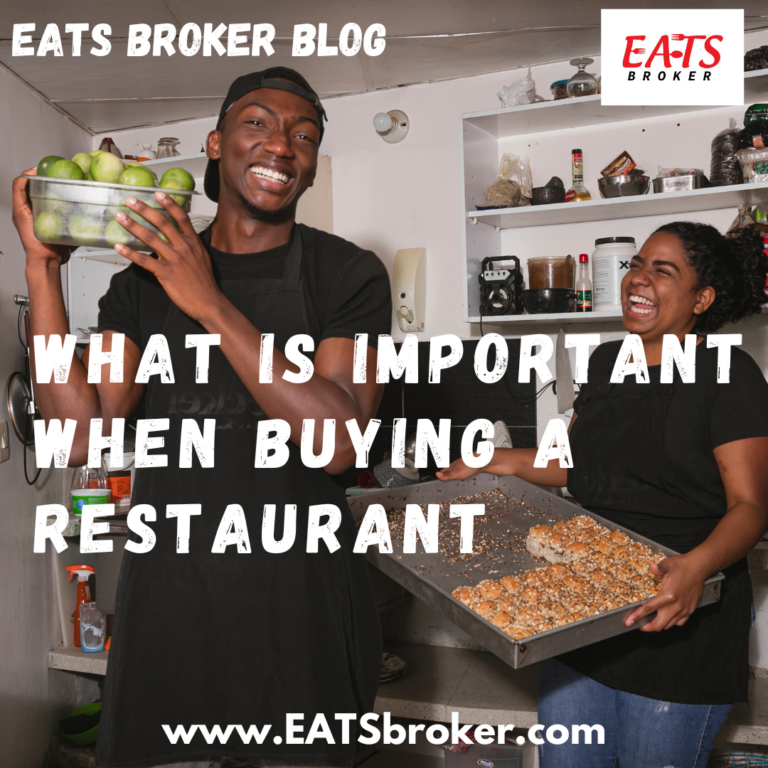
Performance is critical when buying a restaurant, a known fact to savvy buyers today. BizBuySell Insight Report 2024 Q2 reports support the theory that buyers
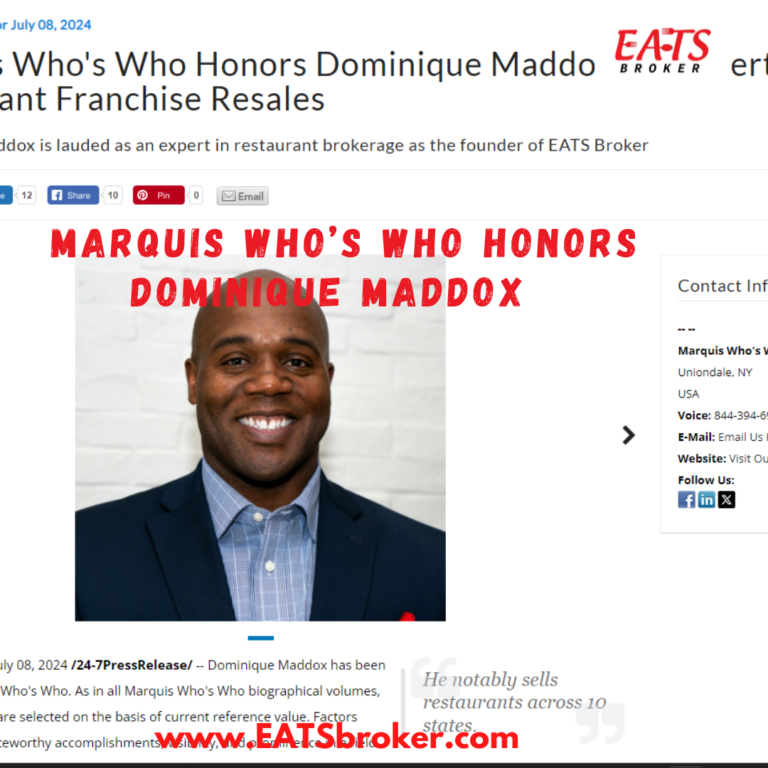
Marquis Who’s Who Honors Dominique Maddox for Expertise in Restaurant Franchise Resales. Established in 1898, Marquis Who’s Who began publishing biographical data in 1899. The
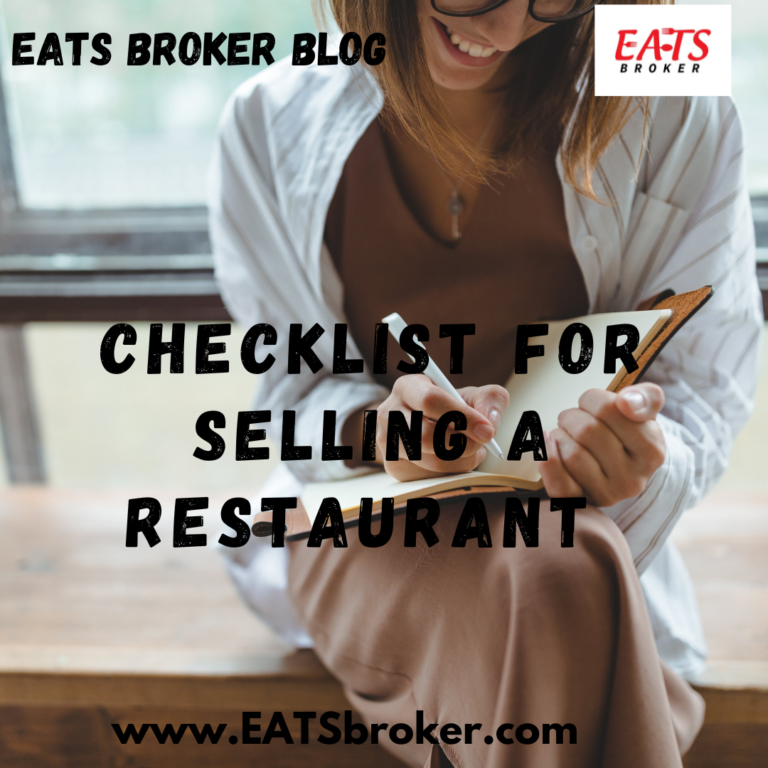
Restaurant Broker provides a Checklist to Sell a Restaurant
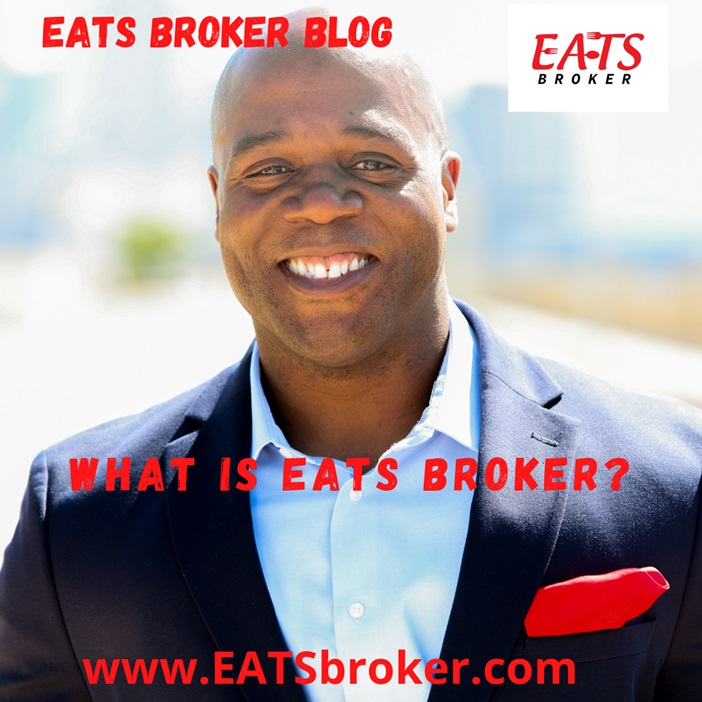
When it comes to the question, ‘What is EATS Broker? ‘, the founder and President, Dominique Maddox, is best positioned to answer. With his extensive
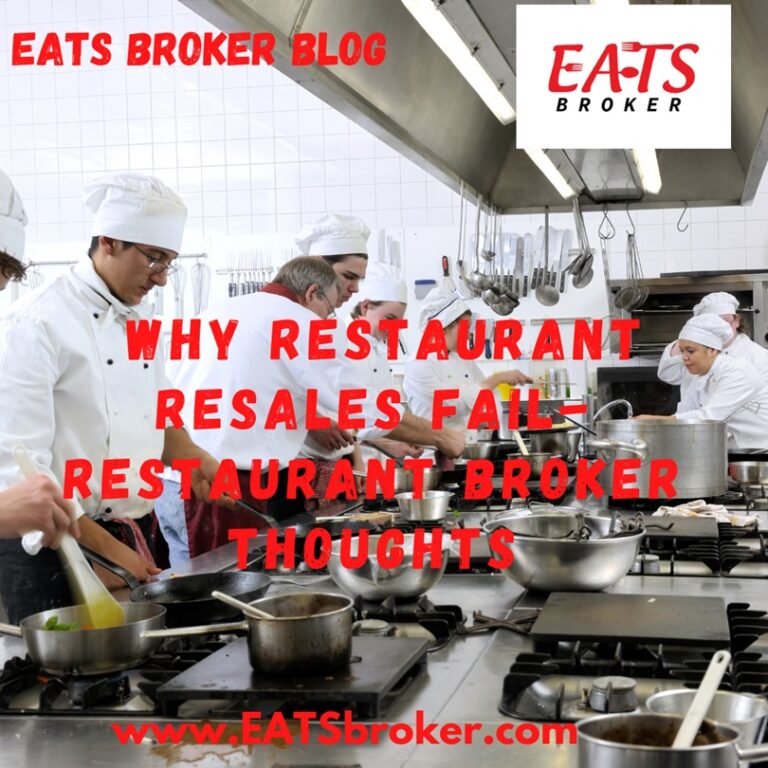
This blog is the first time EATS Broker shares its thoughts about why Restaurant Resales fail in today’s market. Before restaurant owners open the doors
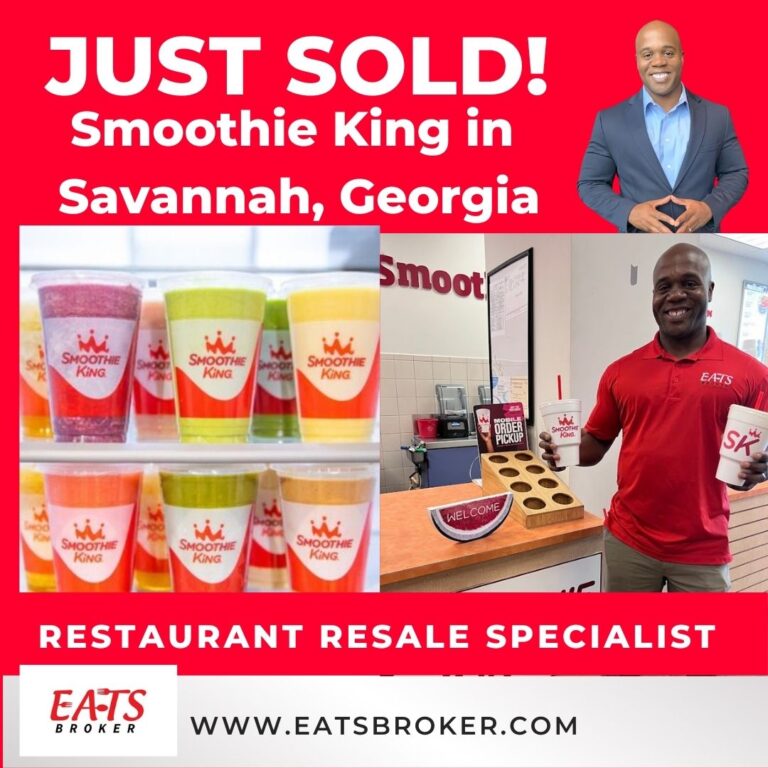
Dominique Maddox of EATS Broker sells Smoothie King, located at 4317 Ogeechee Rd, Suite 104, Savannah, GA 31405. EATS Broker represented the Seller and buyer
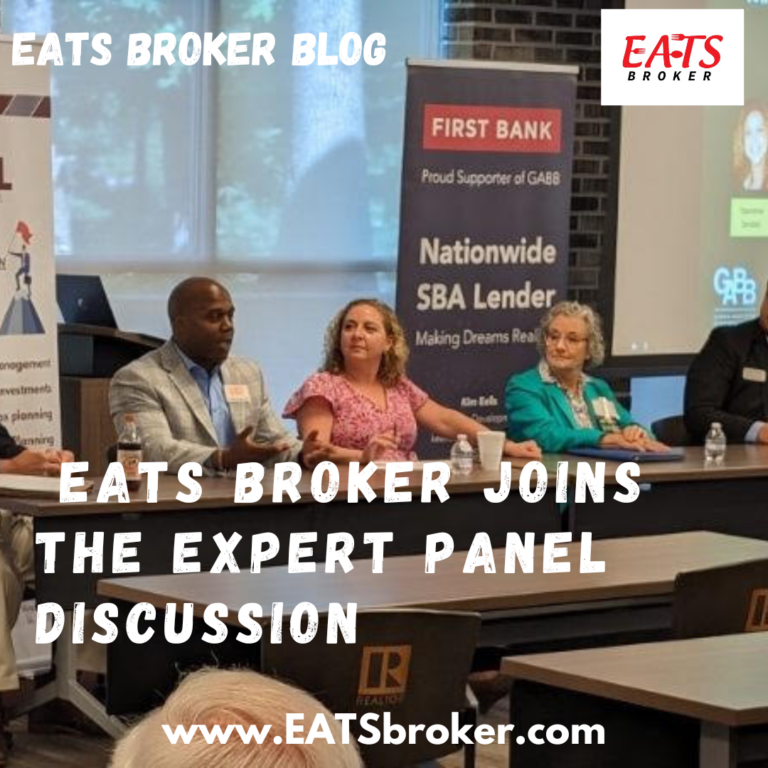
EATS Broker participated in the highly informative Expert Panel Discussion at the Georgia Association of Business Brokers (GABB) May General Meeting. The panel, consisting of

© Copyright 2025 EATS Broker | Consumer Protection Notice | Information About Brokerage Services